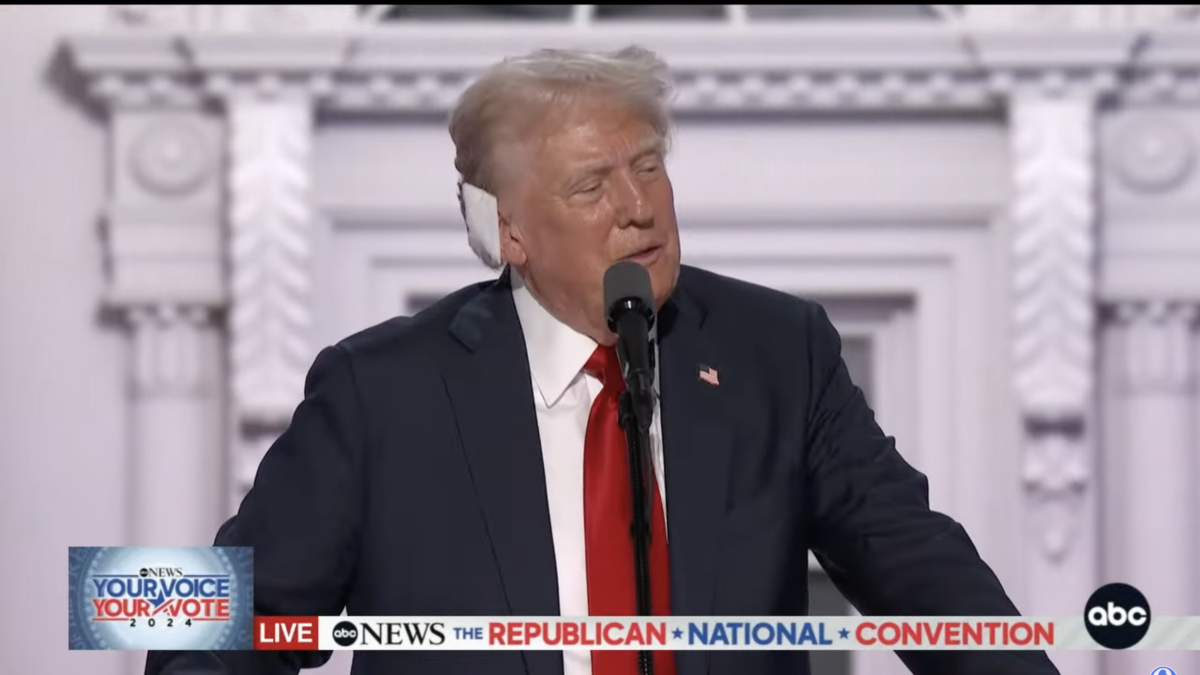
When you woke up this morning and sat down, coffee in hand, to catch up on your favorite lifestyle and design blogs, you may have caught something else: a dose of liberal politics. Even if you were only interested to read up on fashion or the almost-too-perfect pictures from the real lives of bloggers, it happened—and it doesn’t seem to be getting any better.
In the last ten years, lifestyle and design blogs have exploded on the Internet and feature, well, the aspects that make up a woman’s “lifestyle.” This includes fashion, design, recipes, vacations, books, marriage and relationship advice. The best contain all of these.
Although these blogs are inventive and diverse enough that they might replace their in-print counterparts, they are perfectly uniform in expressed views on American politics and the recent election. In contrast to their variety of styles and expansive focus, they all conform on politics.
2016, the Year that Ruined Everything
The political affiliation of these bloggers is not news. Most of them have hinted at their politics in the past. Most were not outright partisan. But of course, there are tell-tale signs, such as the heavy use of a fashionable, cutesy feminism.
Within the last year political posts have become frequent. Throughout the 2016 election and in its aftermath, lifestyle blogs have become a meeting place to discuss the deplorable Donald Trump and the horrific loss of Hillary Clinton.
Bloggers themselves have noticed the change in focus as well. Queen of the Blogosphere Joanna Goddard (Cup of Jo) wrote, “Over the past year, I’ve noticed something growing online, and it’s amazing: Women are talking directly to women about everything that goes on in our lives. With the internet, young women can have a voice now without having to go through a traditionally male hierarchy (movie producers, magazine publishers, etc). They’re having a conversation and owning it.”
Equally amazing is how one-sided these conversations are. When every blogger in the conversation is liberal, their political posts come off as virtue-signaling rather than an actual political discussion. And it is everywhere. A blog post encouraging political action is not enough; there is also Instagram and Twitter.
What the Lifestyle Bloggers All Say
They all say the same exact things.
We miss the good old days of Barack Obama. After the election, there was a tidal wave of wistfulness regarding the Obama presidency, which only continued after the inauguration. While Trump was busy issuing his controversial executive orders, bloggers were busy wishing for the good old days of Obama.
This requires total blindness to Obama’s faults. Although they saw fit to criticize Trump’s refugee ban, the bloggers in question never criticized Obama’s continued use of drones, which also affected those same refugees. As Rousseau put it, “To assume all the abuses in the party one is attacking and to assume none of them in one’s own, is a very coarse and very ordinary sophism, from which every sensible man must protect himself.”
We need to resist. After it became clear that Trump won the 2016 election, lifestyle blogs began list after list that had nothing to do with picking out a good winter sweater. These were lists on how to “resist.” Ways to resist range from the practical to the absurd.
Political engagement is a great thing, but these calls for resistance fall into the same error as the mistaken nostalgia for Obama: Why now? Have these bloggers just discovered politics? And do they assume that all women want to resist? These are “women’s issues,” they say. They forget that not all women supported Clinton. For this reason, their calls to resist lack an important element: persuasion.
We need more empathy. Because Trump supporters must be racists, there has been an added effort to encourage others to be more empathetic. Empathy is not a bad thing. We could all use more of it. But the assumptions underlying this type of empathy is that you must vote a certain way in order to qualify as “empathetic.”
If you criticize Planned Parenthood, you must be against women. If you support Trump’s temporary refugee ban, you must hate Muslims. If you have legitimate constitutional or moral reasons for being against Obamacare, that doesn’t matter, you probably want people to die. The person who supports a repeal of Obamacare may be heavily involved in community or church-driven charity, but of course, voted wrongly, and therefore, lacks empathy. This black-and-white thinking places empathy in the realm of politics alone, but in not in everyday life.
We need to (mis)understand Trump voters. After the initial shock of Trump’s win, many lifestyle bloggers not only demanded empathy for the marginalized, but for Trump voters also. The intentions here are good; their methods remain patronizing.
Instead of taking Trump supporters seriously, bloggers persist in the delusion that only poor, white working-class people could buy in to Trump’s rhetoric. They read J.D. Vance’s “Hillbilly Elegy” or encourage their readers to learn about what it means to be poor and white in America. But these attempts eventually return to the assumption that there is no reason other than ignorance or racism that someone would vote Republican.
If these lifestyle bloggers really wanted to pop their bubbles, they could read George Borjas’ “We Wanted Workers: Unraveling the Immigration Narrative,” which argues that the concern about jobs and immigration is legitimate and not solely based on racism They might even read Charles Murray’s “Coming Apart” to see how the divide between upper and lower-class whites occurred, and what can be done about it. Not even bothering to take seriously the arguments for voting for Trump, even if only to disagree, is to remain superficial in political thought.
Go to lifestyle and design blogs if you want an easy recipe, design inspiration, thoughts on parenting. These blogs are a great representative of the amount and difference of creative ability the Internet makes available. But in politics, these blogs are all unvarying in their devotion to liberals. In their quest for more empathy and more diversity against Trump, they only reveal themselves to be completely superficial and perfectly homogenous.









